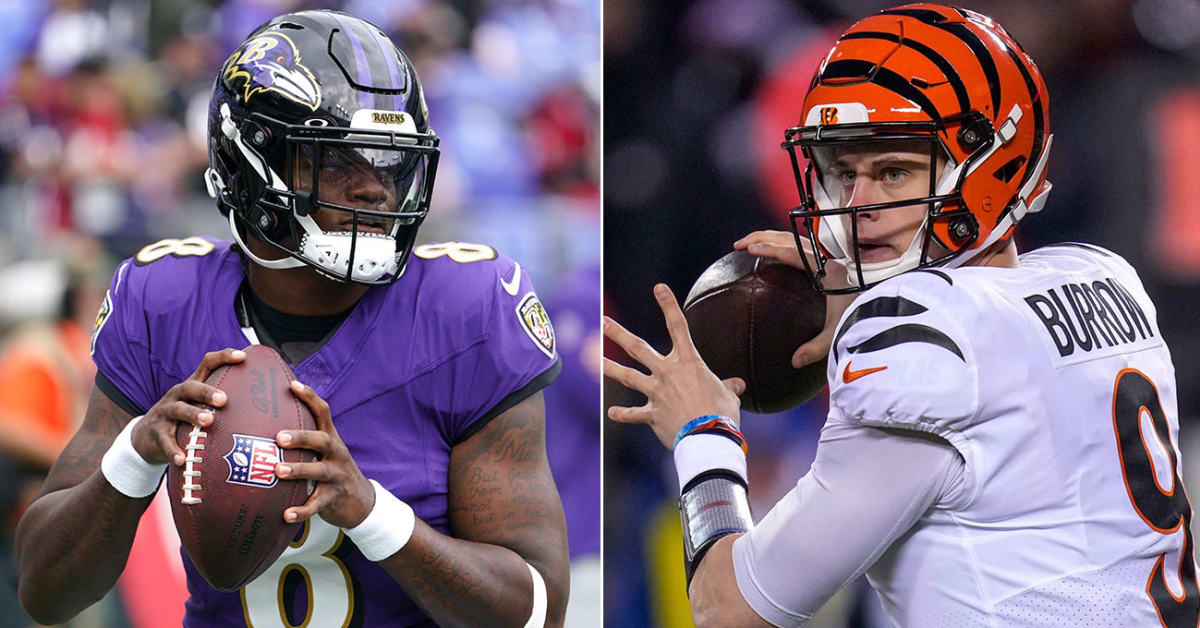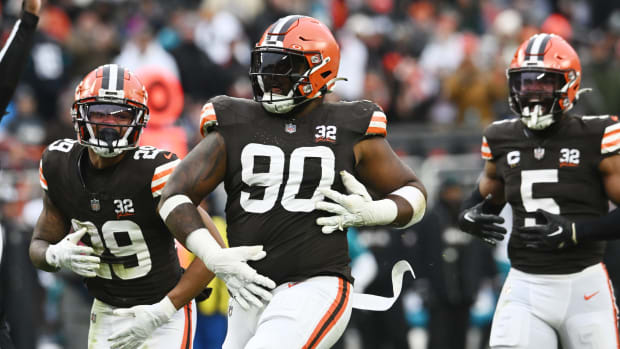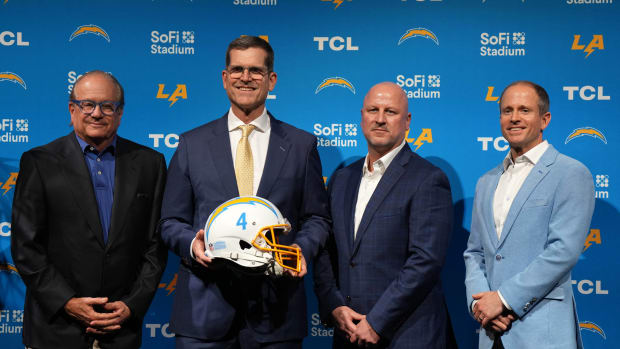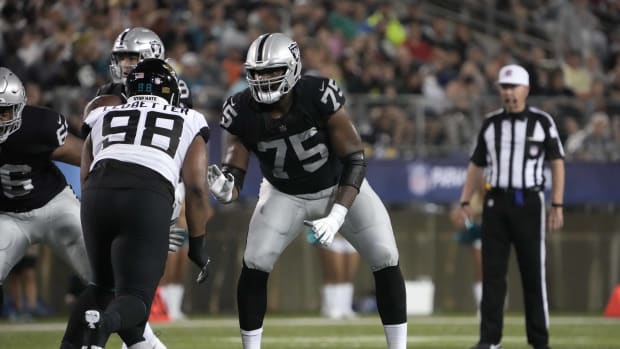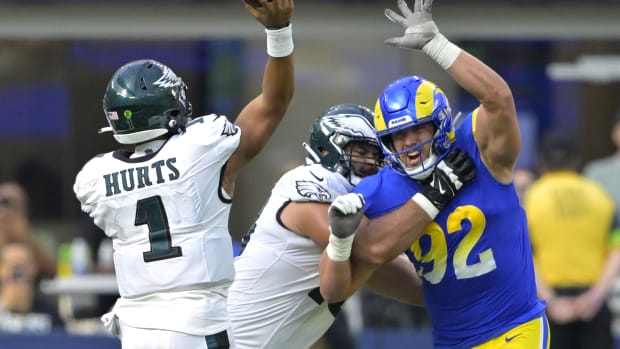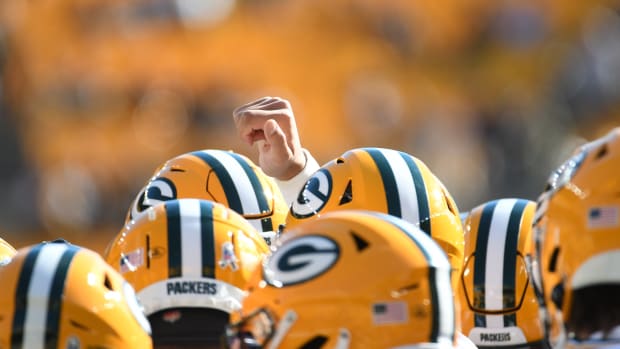Comparing Every 2023 Offseason NFL Quarterback Contract
Before my thoughts on the quarterback (contract) class of 2023 and the defensive linemen holdout resolution, a word on the injury to Aaron Rodgers, on whom I have shared many personal insights in this space over the years.
I feel for him, and I feel for Jets fans. This was a time of hope, renewal and excitement for Aaron and the Jets, and it lasted all of four plays.
Just as I continue to be an unabashed Packers fan, I continue to be an unabashed Aaron fan. From the first day of his professional career, I saw both his on-field skills and off-field intelligence, with an uncanny ability to be peaceful though chaos. And I took some heat over the past couple of years for being a fan of Aaron (with some of those people being admirers of Aaron this past offseason). Lol.
Aaron’s time with the Packers had become stale, and it was time for a change (I can relate to that). The Jets were his hope, and he theirs. I feel for both sides.
As to the Packers “only” getting a second-round pick from the Jets in the next draft, as opposed to a first-rounder were Rodgers to have played 65% of the Jets’ snaps this season, Packers fans should not be disappointed. The team extracted the following from the Jets, the only trade suitor for Rodgers:
• A first-round pick swap in 2023
• A high second-round pick in 2023
• A second-round pick in 2024
• Assignment of a $108 million—now $75 million—financial obligation
All for a player who was never going to play for the Packers again and, sadly, played only four plays for the Jets. I think Packers fans can feel good about that trade.

Jackson and Burrow are two of the quarterbacks who signed massive new deals this offseason.
Mitch Stringer/USA TODAY Sports (Jackson); Sam Greene/The Enquirer/USA TODAY Network (Burrow)
Quarterback contract carousel now complete
The 2023 offseason is now in the books, and the biggest business of football story (besides the running back dystopia) is the negotiation of new contracts for top young stars at the game’s most important position. Contract extensions for Lamar Jackson, Jalen Hurts, Justin Herbert and Joe Burrow are now complete. With that, here are five observations.
1. The five-year numbers are staggering, but they’re not five-year contracts.
The game that national media and agents play is, in many ways, the same game NFL teams and agents play. Often when finishing a deal for the Packers, the agent would ask, “Can I tell [national media member] that the deal is for X over Y number of years?” My thought was that if that helped us close the deal, they could knock themselves out.
All of these contracts were reported as five-year contracts. Only Jackson’s is (see No. 3 below). Hurts had a year left on his rookie contract; Herbert and Burrow had two years left. The new contracts replace the existing ones with six-year (Hurts) and seven-year (Herbert and Burrow) deals.
Thus, the real contracts and averages are as follows: Hurts is at six years, $259 million ($43.2 million); Herbert is at seven years, $295 million ($42.1 million); and Burrow is at seven years, $310 million ($44.3 million).
Listen, making $42 million to $44 million a year is highly impressive and sets up these players for generational wealth. But they are not making $50-plus million a year. Thus …
2. Despite the numbers, these are wins for the teams.
Yes, I know these teams are paying out hundreds of millions of dollars for these players. But having been on both sides of these negotiations and knowing the escalating value at this position, these contracts are wins for the team.
Just like Patrick Mahomes and Josh Allen, these young faces of their franchises are under contract, with no chance of leaving their teams, through at least the primes of their careers. That is invaluable to these teams.
I negotiated an 11-year deal for Brett Favre in 2001 that was the NFL’s first $100 million contract. I knew then, as I know now, that the market for top quarterbacks would rise exponentially in years to come. Unlike other positions—running backs an obvious one—this position will never decrease in value.
The front offices of the Chiefs, Bills, Chargers, Bengals and Eagles have their most important assets in place and under contract through the end of the decade.
There is no better feeling in management.
3. The agentless out-negotiated the agented.
There seemed to be a national drumbeat questioning why Jackson, throughout his long and protracted contract battle with the Ravens, would not hire a traditional agent, preferring to negotiate by himself with a small group of advisors. In the end, though, he had the last laugh.
Had Jackson fallen in line and “taken the money” after his third or fourth seasons, the Ravens would have tried to leverage his remaining rookie contract years as other teams have done. Jackson’s patience, and/or the Ravens’ intransigence, paid off, as it was Jackson who leveraged the team, not vice versa, using his status as a franchise tag player.
Although Jackson was unable to wrangle a fully guaranteed contract (see below), he was able to negotiate a “true” five-year contract with an accurate average of over $50 million. It is a stunning contract, and its length sets him up for another renegotiation while still at a prime earning age (29). Allen, in the same draft class as Jackson, took the money from the Bills two years ago and will make $125 million through 2025. Jackson, who waited and played two years under his rookie deal, will make $156 million through ’25.
The agent world must be quietly steaming about this result.
Jackson’s earnings this year ($80 million) and over the next two years ($112.5 million) are the highest in the NFL, the latter number some $20 million clear of the next player (Deshaun Watson, $92 million). Speaking of Watson …
4. The Watson contract remains an outlier.
Readers of this space know how important I said the next wave of top quarterback contracts to follow the Watson deal were to the business of football. This was a moment for NFL contracts. Would the first five-year, fully secured contract break the seal on fully guaranteed NFL contracts and lead to a new era of player empowerment at the negotiation table? Or would the contract be an aberration, a momentary lapse in business judgment by Browns owner Jimmy Haslam?
The quarterback extensions that followed Watson in 2022—Kyler Murray, Derek Carr (Raiders) and Russell Wilson—as well as the quarterback extensions that followed in ’23—Jackson, Hurts, Herbert and now Burrow—have reverted to the traditional structure favorable to management: The early part of the contract guaranteed with future guarantees vesting in subsequent years as long as the player is on the roster. Burrow has the best guarantee structure, with a fully secured three years, but has four unsecured years after that.
The NFL owners, collusively or not, extinguished a threat to their business model.
5. The Mahomes contract remains an outlier.
I get it; Mahomes is happy and loves Kansas City. But you know my pet peeve: He can “help the team” by moving around cap room; he does not need to take less money. And it’s not like his savings have led to the Chiefs signing more star players or even paying top dollar for their own (see Tyreek Hill and Chris Jones).
The numbers become more out-of-line every year. Here are a few of the first three-year earnings of contract extensions over recent years:
• Mahomes: $65 million
• Ryan Tannehill: $90 million
• Josh Allen: $95 million
• Jalen Hurts: $106 million
• Kyler Murray $108 million
• Russell Wilson $126 million
• Dak Prescott: $126 million
• Justin Herbert: $134 million
• Deshaun Watson: $137 million
• Joe Burrow: $146 million
• Lamar Jackson: $156 million
The good news for quarterbacks is that, like Watson on the other end of the spectrum, this contract appears an outlier. While there have been seven- and eight-year deals since—Allen, Herbert, Burrow—none have matched the extraordinary length of the Mahomes deal or the paltry early money earned.
I know, I know: He’s happy. But this column is about the business of football, and this contract is a business home run for the Chiefs.
A tale of two holdouts
Two of the league’s best defensive linemen in history staged the NFL version of civil disobedience over the last month, registering their discontent over their contract—ironically, both were scheduled to make about $19 million—and hoping to cause their front offices to react with a lavish response. That certainly happened for one of the two. The other … well, no.
The 49ers rewarded Nick Bosa with a five-year extension worth $170 million. Added to the existing $19 million per year, it is a six-year, $189 million contract. With an average of $31.4 million over the six years, it is a staggering deal and puts Bosa alongside Aaron Donald as the highest-paid nonquarterback in NFL history. Further, it has an eye-popping $50 million signing bonus and three-year earnings of $98.5 million ($33.5 more than Mahomes), and the team rescinded all of his preseason fines, allowed by the CBA due to Bosa’s still being on a rookie contract.
As for the Chiefs and Chris Jones, I cannot fathom what his seven-week absence accomplished (other than missing training camp).
Jones received no pay increase; in fact, his pay was reduced over a million dollars after forfeiting his Week 1 game check. His fines were not rescinded; the Chiefs could not even do that if they wanted as the CBA prevents that for veteran contracts. So what did Jones get for coming back to the Chiefs? Um, well, incentives.
The Chiefs added a 15-sack incentive (he already had a 10-sack incentive) and playtime incentives (he is starting from a deficit, having missed the first game) along with a couple others tied to being in or winning the Super Bowl, along with being First Team All-Pro or Defensive Player of the Year.
So let me get this straight: Chris Jones returned to the Chiefs for no new money, no fines rescinded, no first-game check refunded and the bulk of incentives tied to being the best defensive player in the league and winning the Super Bowl?
If I were the Chiefs, I’d sign this before the agent and player realized what just happened.
Bosa got rewarded handsomely; Jones returned a million dollars lighter and with his tail between his legs. A tale of two holdouts.
































